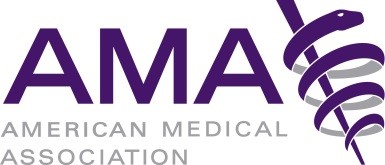AMA releases updated analysis of competition and vertical integration in commercial PBM markets
September 12, 2023 – As expectations grow for congressional action to address questionable business practices of the pharmacy benefit manager (PBM) industry, the American Medical Association (AMA) today released an update to its analysis of market competition among PBMs that provide middlemen services in the drug supply chain and their vertical integration with health insurers. The AMA analysis found that local PBM markets were highly concentrated on average and had consolidated even further compared to the AMA’s initial findings, indicating a widespread decline in competition in local PBM markets across the United States.
“The effects of less competition and more vertical integration in the PBM industry deserve regulatory scrutiny as a check against anticompetitive business practices that harm patients by raising drug prices, lowering quality, reducing choice and stifling innovation,” said AMA President Jesse M. Ehrenfeld, M.D., M.P.H. “As momentum grows for PBM reform in Congress, the AMA continues to lend its support to bipartisan bills that help promote greater transparency and oversight of PBM policies and practices to ensure prescription drugs are affordable and accessible.”
Based on 2020 data and newly acquired 2021 data, the updated analysis presents market insight on five different PBM services performed for insurers: rebate negotiation, retail network management, claim adjudication, formulary management, and benefit design.
The analysis found significant portions of the national markets for two services, formulary management and benefit design, were managed in-house by health insurers rather than bought from the PBM market. In contrast, commercial insurers largely relied on PBMs for three services: rebate negotiation, retail network management and claims adjudication, rather than conducting them in house. The analysis thus assessed market competition for those three product markets.
- At the national level in 2021, the four largest PBMs [Express Scripts, OptumRx, CVS Health (owner of CVS Caremark and Aetna Pharmacy Management) and Prime Therapeutics] collectively had a 68% share of the PBM market for rebate negotiation. Express Scripts alone had a 21% share. As health insurers tend to use the same PBMs to supply all three services, the shares and rankings for retail network management and claims adjudication were almost identical to rebate negotiation.
- The collective share of the four largest PBMs in the national commercial PBM market increased from 64% in 2020 to 68% in 2021. This was largely due to CVS Health acquiring Aetna, which owned its own PBM (Aetna Pharmacy Management) prior to the merger.
- On average, local PBM markets were highly concentrated in 2020 and became even more concentrated in 2021, which was also due to the CVS Health-Aetna merger. Across product and geographic markets, average concentration and the fractions of markets that were highly concentrated increased. At least 80% of state- and metropolitan-area level PBM markets were highly concentrated in 2021.
- Health insurers that were vertically integrated with a PBM covered 70% of all people with commercial drug insurance in 2021, up just one percentage point from 2020. Although the average vertical integration shares across states and metropolitan areas were somewhat lower (63% and 65%), there was wide variation across states and metropolitan areas. Some states had almost no vertical integration between insurers and PBMs, while others were almost entirely vertically integrated. South Dakota had the smallest vertical integration share (6%) and Utah had the highest vertical integration share (97%). Since a significant portion of the market was not vertically integrated, the risk of consumer harm from vertical mergers remains.
The analysis of competition and vertical integration in commercial PBM markets adds to the AMA’s work to shine a light on lack of market competition in the health insurance industry. Protecting patients and physicians from anticompetitive harm will continue to be a vital issue of public policy for the AMA, the federation of medicine, and the nation’s physicians. The AMA website offers additional information on the AMA’s efforts against anticompetitive mergers.
About the American Medical Association
The American Medical Association is the physicians’ powerful ally in patient care. As the only medical association that convenes 190+ state and specialty medical societies and other critical stakeholders, the AMA represents physicians with a unified voice to all key players in health care. The AMA leverages its strength by removing the obstacles that interfere with patient care, leading the charge to prevent chronic disease and confront public health crises, and driving the future of medicine to tackle the biggest challenges in health care. For more information, visit ama-assn.org.


























